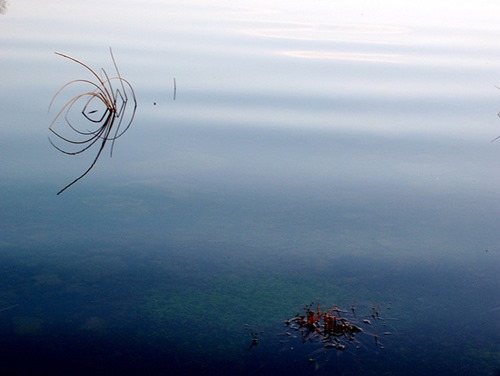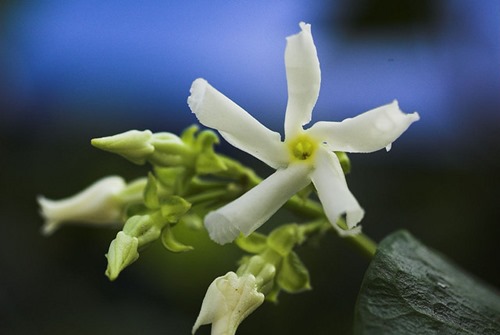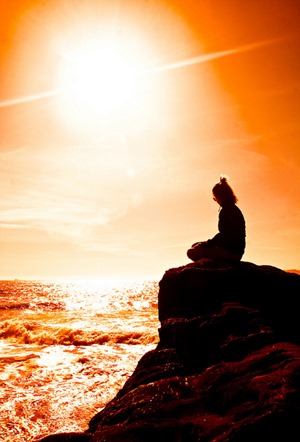Wholehearted, The Middle Way, and the Art of Doing Your Best
Not long ago in Singapore, I met with an old friend. Kind, talented, charming, earning a decent livelihood at one of the most powerful companies in the world, he made me surprised that he weren’t enjoying his work.
“Things are so-so. I learn from my work, get excited from time to time and all. But I don’t feel great. You know. Like I’m not passionate about it. I don’t know why but I feel that something is missing. I’m not giving it 100%.” He said. My friend, like many others, was struggling because he hadn’t learned the art of doing his best.
The Way
My yoga teacher says this every day: “Do your best. Not more. Not less.” As yoga is a way of life, I know this is the way both on and off the mat. All my life I’d been always bouncing back and forth between doing too much or too little. I look around and see all others do the same thing. Too much or too little.
“Do your best” may sound simple but it is really very profound. When you do your best, you walk The Middle Way mentioned in the Tao Te Ching – one of the deepest of all life teachings, written by the legendary ancient Chinese philosopher Lao-tzu. When you do your best, you are Buddha or whatever spiritual manifestation you choose to believe in. And if you happen to be an atheist, when you do your best your brain and the atoms in your body function at its prime state.
But we don’t need to consult any saints, philosophers, psychologist, or neurologist, in order to learn how to do our best. We simply need to turn to our most trusted consultant: ourselves. Yourself. Let’s do it.
Wholehearted
We cannot talk about “Doing Your Best” without understand the concept of wholeheartedness. Doing your best means doing something with your whole heart. Whole is 100%. Not 101 and not 99. But most of us do things halfheartedly. We are almost never 100% present when we do anything. Our heart, our mind, our attention is divided. When our body is physically doing something, a part of our mind goes else where.
When you are really doing your best, you let go of you. There is no sense of I. There is just the flow. Have you ever do something so stimulating, so intensely pleasurable, that you forget about the time? You accomplish the task feeling whole, loved, and loving. Lovemaking is a great example here. Too little, it feels frustrated. Too much, it feels gross. Just enough and it feels divine.
Writing gives me that same feeling of wholeness and love. I know that any other experience in life can gives us the same thing if we are willing to give our undivided selves to it. Whether it is eating an orange, washing dishes, or driving in traffic jam. The other day I was in the traffic jam without the slightest annoyance. I found myself smiling for no reason. I was the Buddha – the spiritual manifestation I adore – in the traffic jam of the city of Hanoi.
“How to change my life?” isn’t as good of a question to ponder as “How to increase how much of me that is experiencing the life I have?”
A jasmine blossoms for its own joy
When you do your best you do it for the joy of it. Like a jasmine blossoms for its own joy. But we do the opposite: we work for a reward and we hate our work. We wait for fame, money, power, approval, security, self-worth… Being so divided we can’t do your best. We either do too little out of boredom, idleness, and laziness; thus becoming useless. Or we do too much out of fear, self-judgment, and insecurity; thus becoming depleted. Either ways, we don’t feel whole, loved, or loving.
We wait for the praise, or the payday, or the award night, or the promotion. And what do we do when they actually come? We get some instant gratification. But when it wears of - it always does - we realize we still feel incomplete, so we do some more. Hustle.
We wait for the end of office, the weekend, the holiday. And what do we do when we have some free time? We find a way to escape, to distract ourselves because we hate your life. We abuse things that is supposed to give our lives pleasure: alcohol, sex, food, entertainment, gadgets, our loved ones. We sedate ourselves because we’re afraid to take a clear look at the life we’ve chosen. As a result, our mind gets dull; our body gets sick; our soul in torment.
We hurt ourselves because we don’t listen to our body and mind when they screams “I’m so hurt, so afraid. Love me. Take care of me.” And we don’t listen because we don’t like who we are.
Past, Future, Distractions
When you do your best you are in your flow with undivided attention. But most of us are constantly divided by shame from the past, worries from the future, and distractions. As a writer, this is what I deal with daily:
Future: Oh My God. What are you doing? Don’t you have better thing to do with your life? You are not making any money! And you will never be because you have no talent at all…
Past: Your article yesterday received no likes and no shares. You see, nobody cares what you have to say… By the way, what a dumb sentence you’ve just written.
Distraction: Hey you gotta check out how many people respond to your update yesterday on Facebook!… Your boyfriend must’ve sent you a message. It has been a couple of hours since he last did… Check your phone, check Facebook…
If I get involved with these kind of stuff, there is no way for my writing to be good. There is just no way for me to do my best. There is no way for me to finish 4 hours of writing feeling whole, loving or loved. Instead I will cry and feel like shit – if I ever write for 4 hours at all.
Be willing…
It is really not our fault. We learn from the adults of our childhood, and mirror the ghosts of the society we’re born in. We do only what we know. When we know better, we can change. You can change.
When you can soberly, calmly, sanely look at yourself in the mirror and accept the person you see as exactly who he or she is. “I accept you and love you exactly as who you are now.” When you see clearly the predicament you’ve unknowingly created for yourself. You can change. You don’t even need to know how. You just need to b e willing. Being willing brings you the how.
I am willing. My how is practices that help me stay present and centered: yoga, meditation, the morning pages. I do not compromise the hours dedicated to these practices. Otherwise, all will be lost.
It’s vital to know that your best is not static; it changes from moment to moment, from hour to hour. Your best when you are sick isn’t the same as your best when you are healthy. Your best also changes over time. Keep doing your best and your best will gradually get better. Like in yoga. Today you may not stretch as far as yesterday. But if you keep stretching your best, delicately, mindfully; next month you will surely stretch further than last month. If you stretch too little, there is no growth. If you stretch too far, mental and physical damages keep you away from the practice for a while, or forever. Doing your best is to flirt with your edges, to nudge and expand your limits without breaking them.
When you do your absolute best, you will rediscover the magic in your work and in your life. Or you will understand what your heart truly desires and have the courage to follow it.
When you do your absolute best, you will be free. You will feel a high sense of worth. Because nobody, yourself included, can judge you, because you can’t and shouldn’t do more than your best. You will live an intense, joyous, peaceful life. You will raise yourself to your highest potentials. You will naturally do good to this earth like a jasmine.
“Do Your Best” is, above all, a practice. Practice takes time. You will learn the delicate line between too much and too little, you will learn to walk The Middle Way. It’s crucial to do your best at “Do Your Best”. Don’t expect yourself to be perfect at doing your best. Don’t expect yourself to do your best all the time. Don’t expect yourself to never do too little or too much again. But you can, certainly, do your best.




